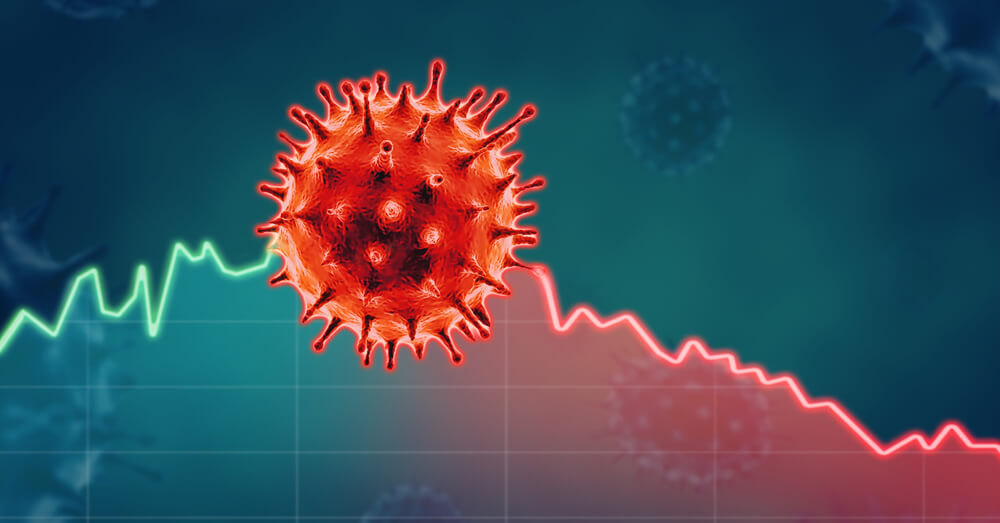Monkeypox, now often referred to as mpox, has been under increased scrutiny as health officials monitor its spread in the US. Despite the alarming rise of cases in certain regions globally, the situation in the US remains under control. However, there is concern about the potential for increased transmission, particularly as new variants emerge.
According to the Centres for Disease Control and Prevention (CDC), there has been a low but steady number of mpox cases in the US since the initial outbreak in 2022.
Although the number of cases has not spiked significantly, health officials are wary of the virus’s potential to spread, especially as different clades, or variants, of the virus are observed in other parts of the world.
Will monkeypox affect the US government like COVID-19?
The COVID-19 pandemic had a profound impact on the US government, leading to massive public health initiatives, lockdowns, and a substantial financial burden. The question now is whether mpox could cause similar disruptions.
While mpox does not pose the same level of threat as COVID-19, it has still required significant attention from public health authorities. The US government’s response has been more proactive compared to the initial handling of COVID-19, likely due to lessons learned during the pandemic.
The government has implemented measures to contain the virus, but the situation is not expected to escalate to the extent seen with COVID-19.
Should the virus spread more widely or a more severe variant emerge, there could be broader implications for public health and government resources. Unlike COVID-19, which led to widespread economic shutdowns, the impact of mpox is likely to be more contained, though vigilance remains crucial.
Government measures to control monkeypox
The US government has implemented a range of measures to control the spread of mpox, drawing from its experience with COVID-19. One of the primary strategies has been vaccination.
The Jynneos vaccine, which was initially developed for smallpox, has been deployed to combat mpox. According to the CDC, those who receive both doses of the vaccine have a significantly reduced risk of contracting the virus.
Along with vaccination efforts, the government has increased testing capabilities and enhanced surveillance systems. Testing centres across the country have been equipped to identify and differentiate between various clades of mpox, enabling a more targeted public health response.
Wastewater surveillance is also being utilised to detect early signs of mpox in communities, which allows for timely interventions.
Furthermore, public health campaigns have been launched to raise awareness about the symptoms of mpox and encourage those at risk to seek vaccination and testing.
These efforts are complemented by the continued emphasis on hygiene practices, which have become a mainstay in the post-COVID-19 world.
US government spending on COVID-19 vs. monkeypox
The financial impact of the COVID-19 pandemic on the US government was immense.
According to the US Treasury, over $5 trillion (£3.9 trillion) was spent on various relief packages, including economic stimulus, unemployment benefits, and public health initiatives.
This expenditure was necessary to mitigate the widespread economic and health impacts of the pandemic.
In contrast, the financial outlay for controlling mpox has been significantly lower. The exact figures are not as substantial as those seen during the COVID-19 pandemic, primarily because mpox has not required the same level of emergency response.
The focus has been on prevention and containment, which, while costly, has not demanded the same financial resources as the large-scale lockdowns and economic support measures necessitated by COVID-19.
The government remains prepared to allocate additional resources should the situation change.
The experience of COVID-19 has underscored the importance of swift and decisive action in the face of public health threats, and this has been reflected in the government’s approach to mpox.
Ongoing vigilance and future outlook
The US government’s approach to controlling mpox is informed by the lessons learned during the COVID-19 pandemic. While mpox does not present the same level of threat, the government is taking no chances.
Enhanced surveillance, vaccination campaigns, and public awareness initiatives are all part of a comprehensive strategy to prevent a widespread outbreak.
The financial commitment to controlling mpox is significant but remains modest compared to the response to COVID-19. The key difference lies in the scale and severity of the threat. While COVID-19 required a monumental government response due to its widespread and severe impact, mpox, though concerning, has been more manageable.
As the situation evolves, the US government’s preparedness to adapt and respond will be critical in ensuring that mpox does not become a more significant public health crisis. The lessons from COVID-19 continue to shape public health policy, with an emphasis on early intervention and comprehensive response strategies.
The post Explained: Could new Mpox threat impact the US economy significantly? appeared first on Invezz
